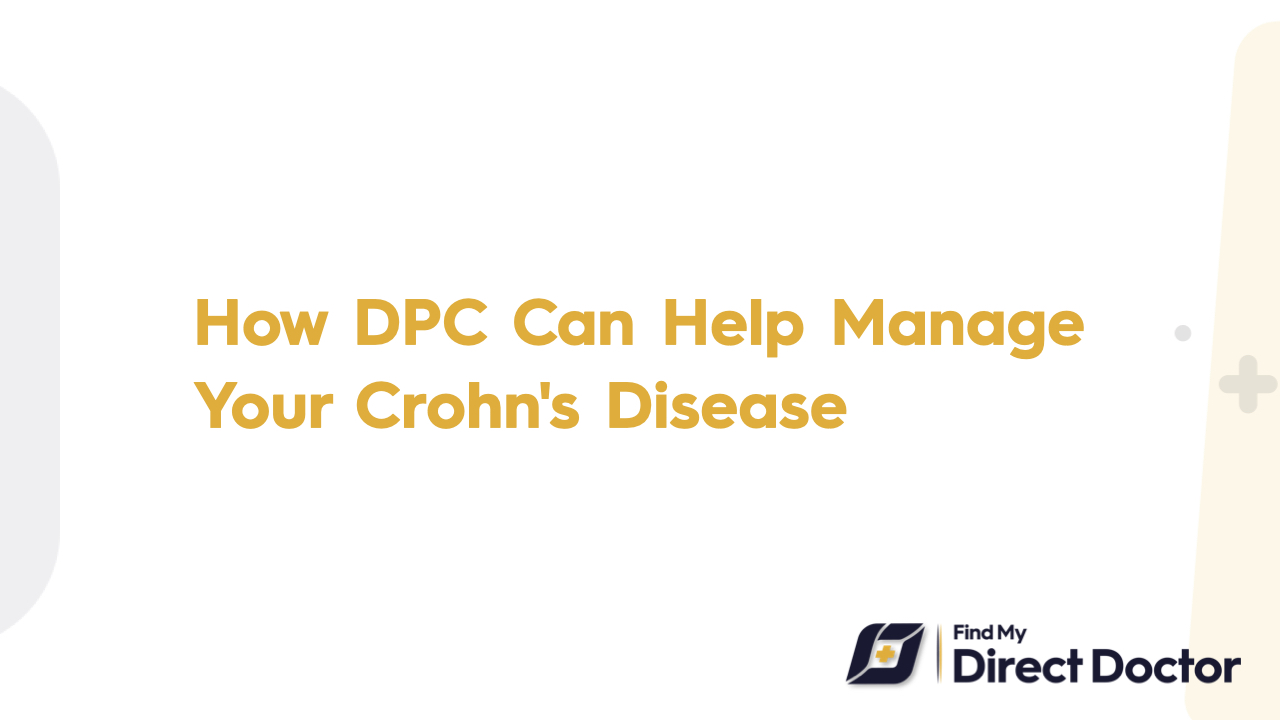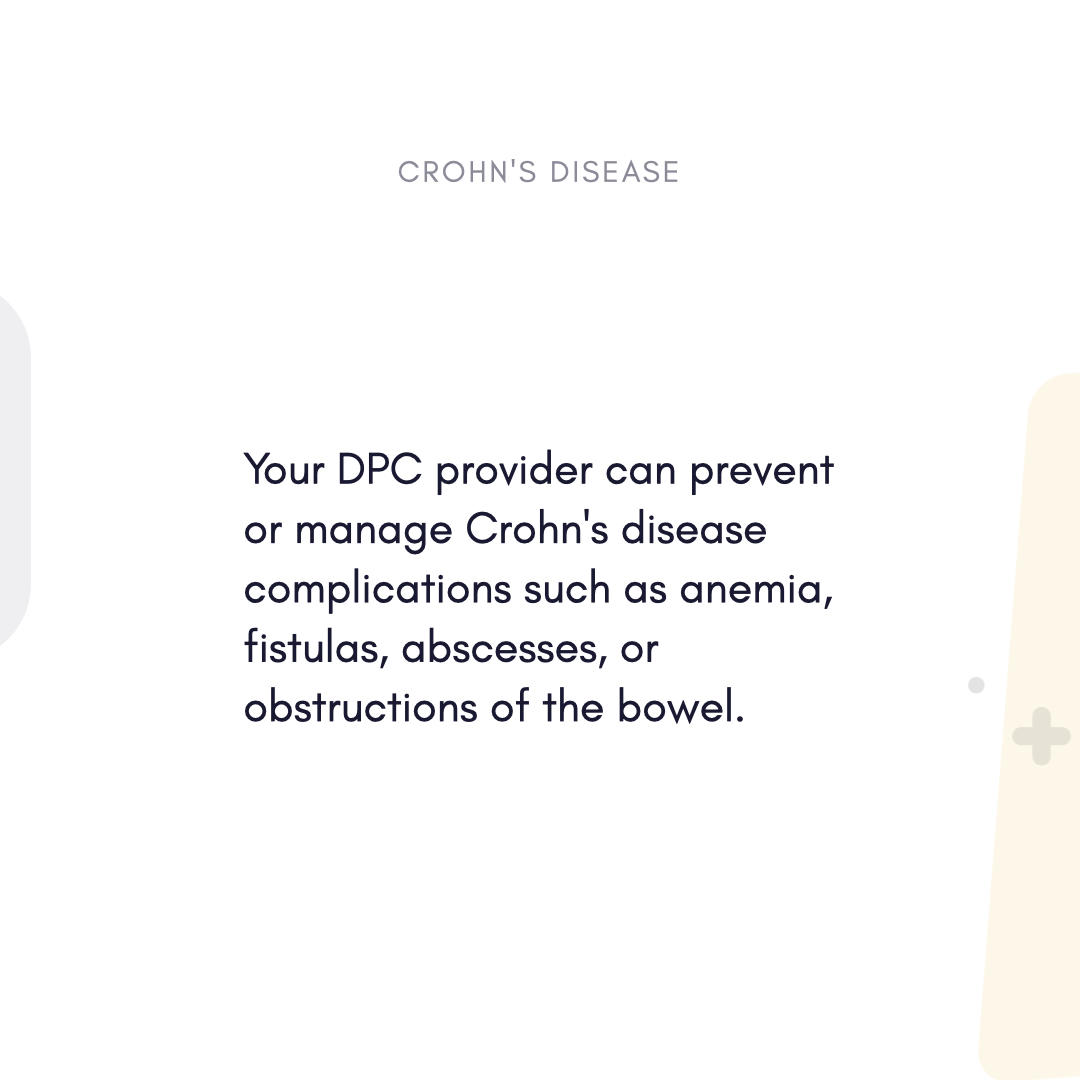Crohn's Disease and Direct Primary Care (DPC): A Collaborative Path to Sustained Remission
Crohn’s disease (CD), a chronic inflammatory bowel disease causing stomach pain, diarrhea, and fatigue, demands constant, tailored treatment to reduce flares, prevent complications, and improve quality of life. Complementing best practices for inflammatory bowel disease (IBD), Direct Primary Care (DPC)—a membership-based healthcare model—provides a patient-centered framework to simplify Crohn’s management through accessibility, customized treatment, and holistic support.

How DPC Controls Crohn’s Disease (Proactive Monitoring & Early Intervention)
- Regular check-ins: Track symptoms (bowel frequency, pain), labs (CRP, calprotectin), and drug efficacy via in-person/telehealth visits.
- Flare prevention: Identify dietary triggers, stress patterns, or medication lapses to adjust care before hospitalization.
- Personalized therapies: Partner with GI specialists to prescribe biologics (infliximab, ustekinumab) or immunomodulators (azathioprine) using DPC’s negotiated pricing.
- Dietary guidance: Recommend low-FODMAP or specific carbohydrate diets to manage malabsorption and bloating.
Multidisciplinary Integration (Holistic Care)
- Collaborative care: Work with GI experts, dietitians, and mental health professionals to address extraintestinal symptoms (arthritis, pyoderma gangrenosum, osteoporosis).
- Surgical coordination: Streamline referrals for strictureplasty or bowel resections when needed.
Mental Health & Lifestyle Customization (Comprehensive Support)
- Stress management: Incorporate yoga, mindfulness, or counseling to reduce flare triggers.
- Nutrition plans: Avoid trigger foods while ensuring adequate nutrient intake (B12, iron).
- Mental health screening: Treat anxiety/depression and monitor for deficiencies/anemia.
- Self-management training: Teach symptom tracking, biologic self-injections, and flare recognition.
Why DPC Helps Crohn’s Patients (Key Benefits)
- Immediate access: Same-day visits for severe flares (pain, bleeding) reduce ER reliance.
- Trust-building: Unhurried visits enhance adherence and patient-provider relationships.
- Cost transparency: Flat monthly fees (USD 50–150) cover labs, imaging, and specialist coordination.
- Reduced admin burden: Eliminate insurance billing to focus on patient care.
Limitations (Important Considerations)
- Severe complications (bowel obstructions, fistulas) require GI specialists/hospitals beyond DPC’s scope.
- Insurance remains essential for surgeries, biologics, or advanced diagnostics (colonoscopies, MRIs).
Final Notes (Empowering Crohn’s Management)
- DPC transforms fragmented Crohn’s care into a proactive partnership for remission and quality of life.
- Prioritizes early intervention and continuous monitoring to reduce flares/hospitalizations.
- Simplifies complexity by uniting GI experts, dietitians, and mental health professionals under one care plan.
- Empowers patients through stress management, self-injection training, and trigger avoidance education.
- Strong patient-provider relationships ensure treatments align with personal goals and lifestyles.
- Combines affordability, tailored plans, and holistic support to turn a chronic diagnosis into a manageable path toward wellness.






